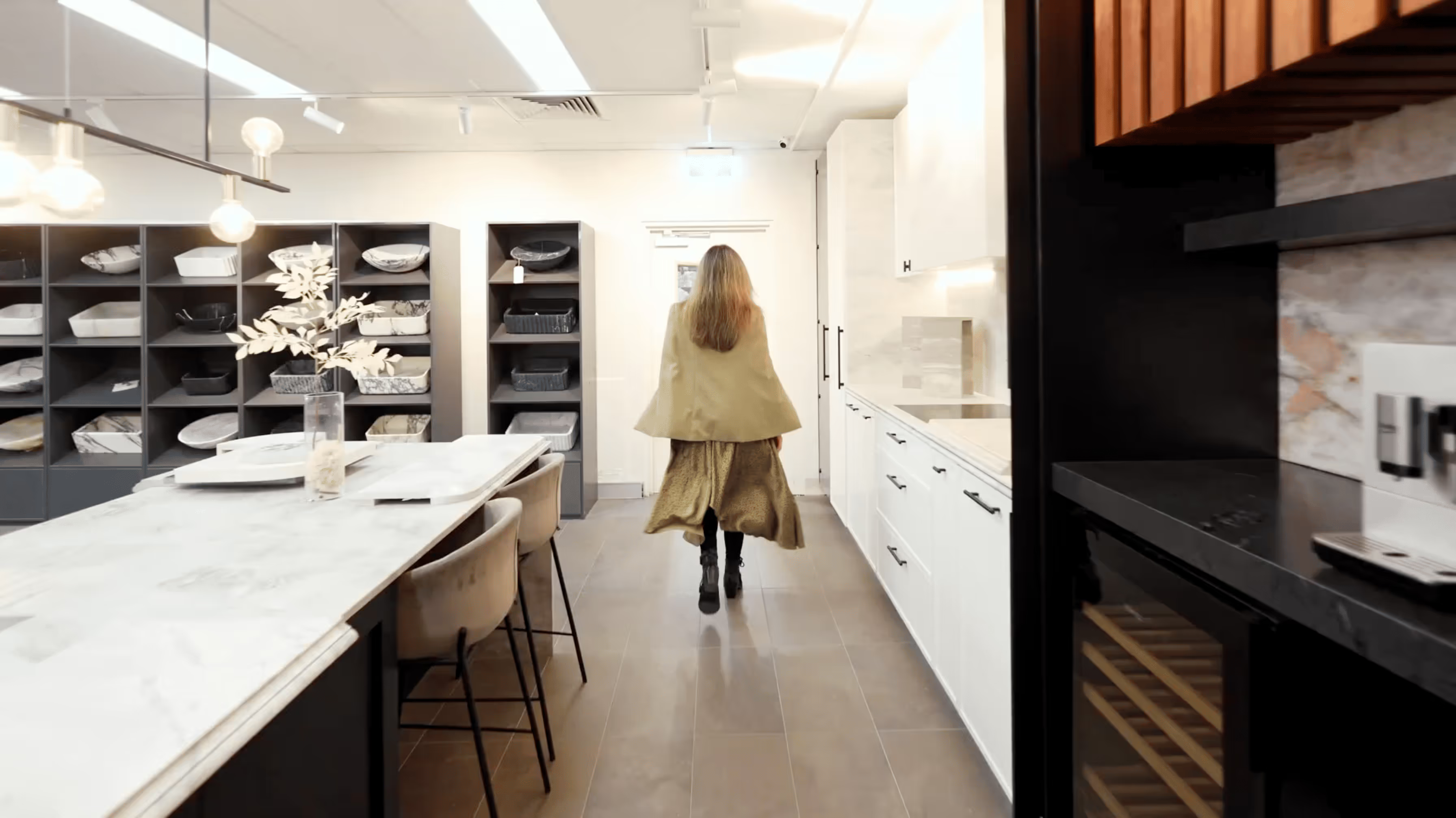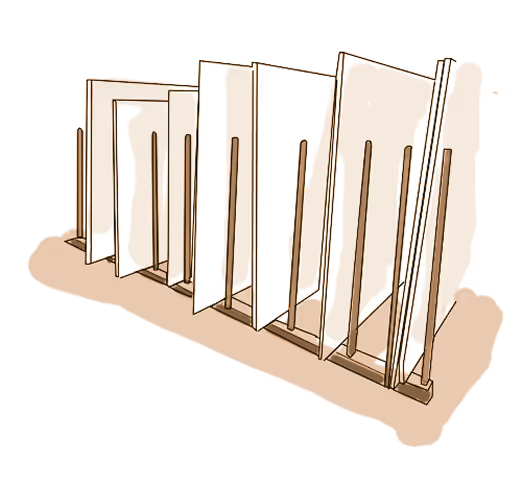Frequently Asked Questions
Marble Hub brings you beautiful, natural stone benchtops created slowly by nature, cut, polished and edged perfectly using cutting edge technology.

Engineered stone slabs (or manmade stone) is only suitable for indoor applications, contrary to common misconception. Manmade stone can scratch, chip and stain. Engineered stone is not suitable for floors with under floor heating, whereas natural stone is suitable. Engineered stone is available in a wide spectrum of colours and the colour is consistent across the surface. Natural stone can be used in any application, indoors or outdoors. Each piece is unique. Its style is timeless, with wide appeal. Natural stone can be repaired or rejuvenated if damaged. Only your application will determine which the better suited material is.
Bookmatch stone slabs refers to when the veining of two or more slabs are matched, from consecutive cuts in the stone block. The adjoining surfaces mirror each other. This is like when you place your two palms side by side, the lines on each palm mirror each other with ever so slight variations.
Yes, slightly. As the colour, veining and pattern moves through the block, slight variations can be seen from slab to slab. All our stone slabs are sold in sequence, so the variations from one slab to the next is minimal.
Yes, our stone masons can resurface and refinish in our factory. Please contact us for more information.
Yes. Please contact us to get more information.
Most stone suppliers in Australia are wholesalers; they do not sell directly to the home owner. When the stone industry was established, the stone fabricator determined the price of the job – including material supply plus labour to measure, cut and install – to the end user. At Marble Hub, our model is based on transparency, making it easy for our customers to purchase stone slabs, where you know the price of the stone slab upfront and you are free to choose your stone fabricator based on craftsmanship and services.
Yes. Email your plans or sketches to our helpfull staff [info@marblehub.com.au] and we will be happy to help you determine the number of slabs.
We sell the whole stone slab, not by the square metre. If you only need half a slab, you will still need to purchase the entire slab.
This will depend on the density of the stone, but in general terms, a slab of 20 mm granite weighs approximately 70kg per square.
Yes, we are proud to sell direct to the public. You can choose your stone slab from our website or visit our showroom at Strathfield NSW to view the slabs.
Yes, of course! Give our details to your stone fabricator and we will work with them to get the best natural stone for your project.
Yes. Usually the best installer of the benchtop is the stone mason that created it, however if you’d prefer to use your own installer, we can liaise with them. Specify you will be using your own installer on your quote request and we’ll give you a supply only price.
Yes, this is a great idea to secure your perfect piece of stone! You can purchase the slabs now and we will store it for free for 3 months. Storage longer than 3 months will be charged at a nominal fee.
Yes, marble can be used as a kitchen benchtop. Many home owners prefer the lighter, natural veining and open appearance of marble. Granite, which is less porous than marble has a speckled appearance with denser patterning and comes in a variety of deeper colours.
The factors that determine the price of stone fabrication include the type of stone, slab sizes, its thickness, the edge profile design, sink type, and its application.
Engineered stone (can also be called reconstituted, re-composed agglomerated and synthetic stone) contains a mix of stone chips that are set with resins, pigments and additives to produce a strong and viable benchtop, splashback or vanity top. Quartz or marble are the most common stone aggregate chips used but also igneous rocks such as granite and basalt can create a unique patterning and diverse range of designer colours. These chips are set in a mixture of mineral fillers, resin binders, pigments and additives and vacuum pressed (using vibrocompaction process) and hardened to minimise the stones’ porosity.
There are more than 20 different edge profiles that can be created with stone. See our edge profiles here [edge profile]. A 20mm pencil round edge is the most cost effective, mitred edges or other edges are more expensive due to the time they take to be shaped. Kitchen benchtops and bathroom vanity tops with rounded edges such as pencil round are less likely to chip. The overall design concept will also need to be considered as to which edge design is suitable for your project.
Yes, the technique we use to create a thicker edge from a 20mm slab is called a mitred edge. It can give an edge profile of up to 200mm thickness. When the edge is mitred, usually the pattern of the stone will follow down the edge. There are more than 20 different edge types that can be created from stone. A 20mm pencil round edge is the most cost effective, mitred edge or other edges are more expensive due to the time they take to be completed. Rounded type edges such as the pencil round are the most forgiving type of edge. Another factor will be the overall design concept that will decide which edge design you will go for.
Yes. The stone looks stunning and gives your outdoor BBQ that luxe look. The dense surfaces of the darker, coloured granites are the best choice for these areas.
A natural stone slab is the best product for these areas.
We recommend the German product, Penetrating Sealer Lithofin MN Stain Stop. This product is applied directly to the stone to seal and protect the surface from absorbing grease, oil, dirt and water.
Sealers themselves need to be re-applied over time as they deplete. Check the instructions on the sealer pack for how often they should be re-applied. Some sealers, depending on the type of stone, sealer and its application, need to be re-applied every couple of months, some every few years.
The surface of your stone should be cleaned with warm water and a mild detergent that you use to wash your dishes. You can also use a soap specifically designed for natural stone available from your hardware store. We have put more details on cleaning and prevention of stains on our maintenance page.
Yes, the heat from very hot items such as oven baking trays, or saucepans from the stove top, can crack the stone. You can use a trivet or remind us to cut a piece from the left over of your slab to make a matching trivet for you to use to place your hot pot on.
Let's Get Started on
Your Dream Space
Whether it’s a kitchen, bathroom, or laundry, Kitchen Hub is here to bring your vision to life.


